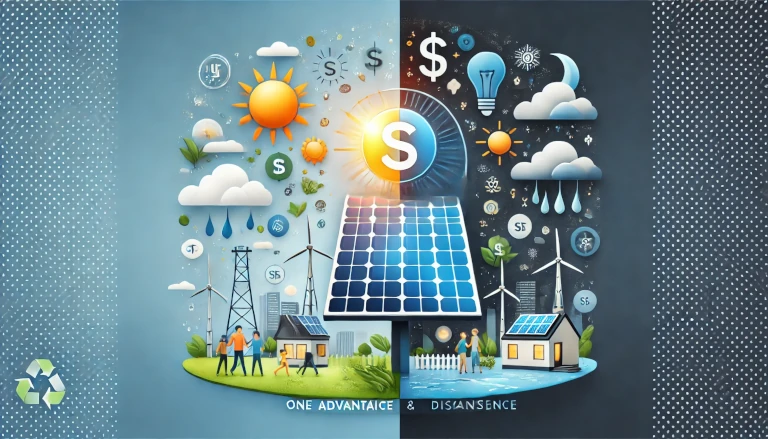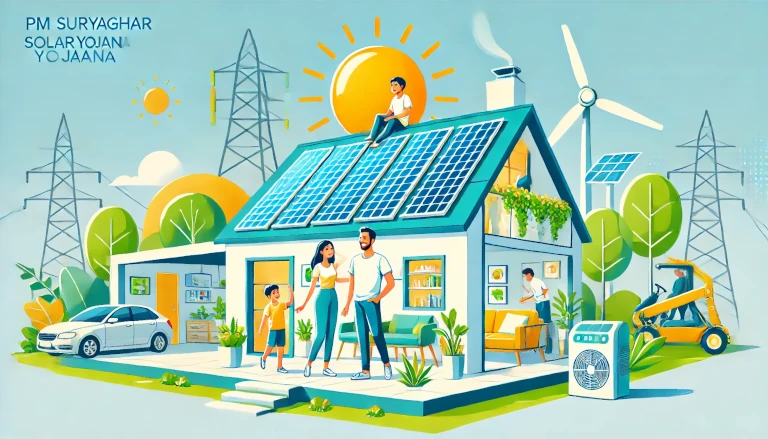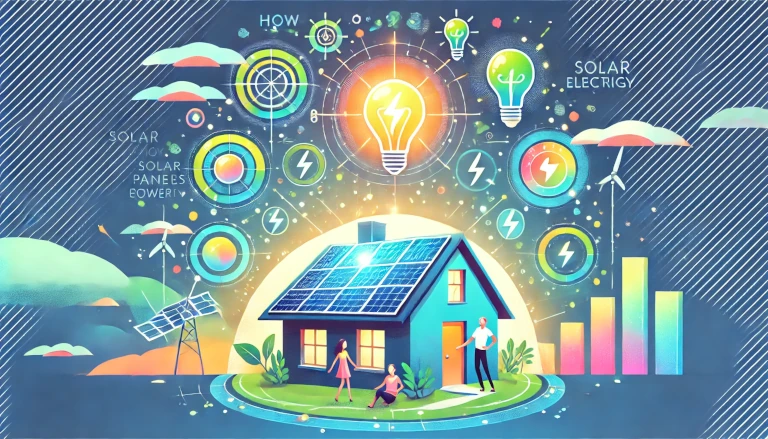Solar energy has become one of the most promising sources of renewable energy in the world today. As the cost of solar panels continues to decrease and governments promote green energy initiatives, more people are considering solar power for their homes and businesses. However, like any energy source, solar power has both advantages and disadvantages. In this blog post, we will explore both sides of solar energy, with real-life examples to help you understand how it can benefit you, and when it may not be the best option.
Advantages of Solar Energy
- Renewable and Sustainable
One of the most significant advantages of solar energy is that it is renewable and inexhaustible. The sun provides an endless supply of energy that can be harnessed to generate electricity. Unlike fossil fuels, solar power does not run out, making it a sustainable solution for the future.
Example: A home in sunny Arizona can power its appliances and reduce electricity bills throughout the year by installing a solar energy system, thanks to the region’s consistent sunshine.
- Reduces Electricity Bills
Solar panels generate electricity from sunlight, allowing homeowners to reduce their reliance on the grid and lower their electricity bills. Depending on the system’s size and efficiency, solar users can save hundreds or even thousands of dollars annually.
Example: A household in California installed a 5 kW solar panel system, which produces approximately 7,000 kWh of electricity per year. This system covers 80% of the family’s electricity needs, saving them about $1,200 annually on their energy bills.
- Environmentally Friendly
Solar energy is a clean source of power that does not produce harmful emissions, unlike coal, gas, or oil. It significantly reduces the carbon footprint and helps combat climate change by decreasing the amount of greenhouse gases released into the atmosphere.
Example: The Ivanpah Solar Power Facility in California generates enough clean electricity to power 140,000 homes annually, significantly reducing carbon dioxide emissions.
- Low Maintenance Costs
Solar energy systems are generally low-maintenance once installed. Since there are no moving parts, the risk of wear and tear is minimal. Periodic cleaning and a yearly inspection are usually enough to keep the system in good working condition for 25-30 years.
Example: In countries like Australia, where dust can accumulate on solar panels, homeowners typically hire a cleaning service once or twice a year. This small cost keeps their system working efficiently for decades.
- Energy Independence
By installing solar panels, individuals and businesses can become less dependent on the grid. This can be especially advantageous during power outages or energy crises when electricity prices spike.
Example: During a power outage in Puerto Rico after Hurricane Maria, many households with solar panel systems and battery storage were able to continue powering essential appliances, providing a level of energy security that grid-connected homes did not have.
Disadvantages of Solar Energy
- High Initial Costs
One of the most notable drawbacks of solar energy is the high initial cost of purchasing and installing solar panels. Although the price has decreased significantly in recent years, the upfront investment can still be a barrier for many homeowners.
Example: A 5 kW solar panel system can cost between $10,000 and $20,000, depending on the location and installer. While federal and state incentives can reduce this cost, it still requires a significant upfront investment.
- Weather-Dependent
Solar energy relies on sunlight to generate electricity. Although solar panels can still produce some power on cloudy days, their efficiency is greatly reduced. Solar power is not a reliable energy source at night unless combined with battery storage systems.
Example: In regions with frequent cloudy weather or during the winter months in northern countries like Germany, solar panels may not produce enough energy to meet all of a household’s needs, making them less effective.
- Requires Space
For homes or businesses that require a significant amount of energy, solar panels need space for installation. Rooftop solar panels may not be enough to meet energy demands for large properties, requiring additional ground space for panel installation.
Example: A commercial building in Texas with high energy needs required a large ground-mounted solar array in addition to rooftop panels to generate enough power. This solution took up a significant portion of the surrounding land.
- Energy Storage is Expensive
If you want to store solar energy for use at night or during cloudy days, you will need a battery storage system. These systems are still quite expensive and can increase the overall cost of a solar installation.
Example: A solar panel system paired with a Tesla Powerwall (a solar battery) can add an extra $7,000 to $10,000 to the installation costs, making it a costly option for complete energy independence.
- Solar Panel Efficiency
Solar panels are not 100% efficient, with most systems converting about 15-20% of the sunlight they receive into electricity. In comparison, conventional fossil fuel plants convert a higher percentage of energy into usable electricity.
Example: While a home in Florida may install a large solar system to generate energy throughout the day, it will still need grid power at night or during overcast days due to the limited efficiency of the solar panels.
Conclusion
Solar energy offers numerous benefits, from reducing electricity bills and minimizing environmental impact to promoting energy independence. However, it also has its limitations, including high upfront costs and weather dependency. By understanding both the advantages and disadvantages, you can make an informed decision about whether solar energy is the right choice for you.
Discover more from Green Ecosystem - Renewable Energy, Agriculture, and Environmental Sustainability
Subscribe to get the latest posts sent to your email.


